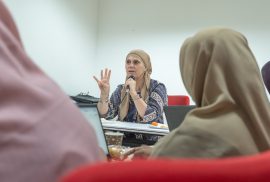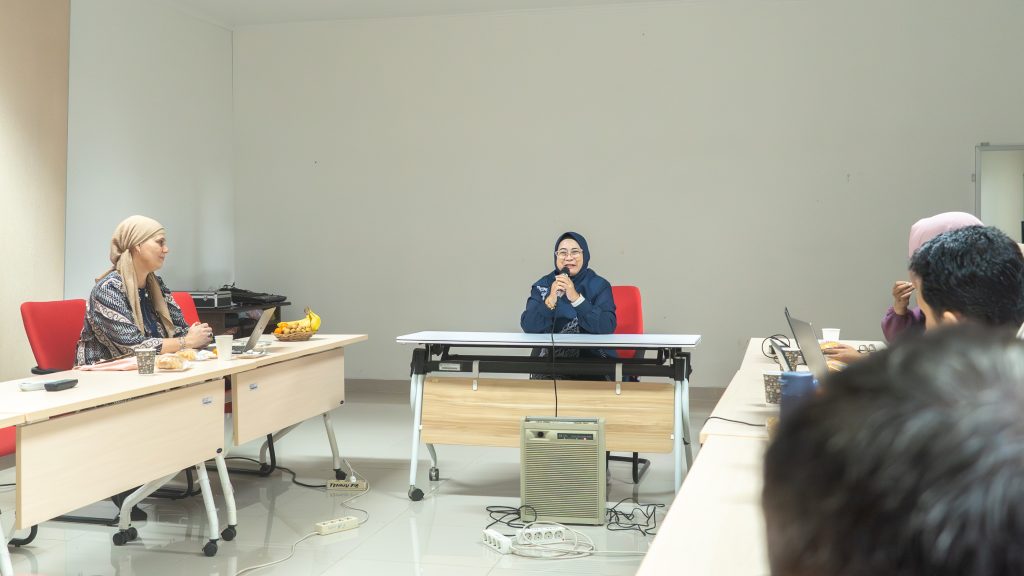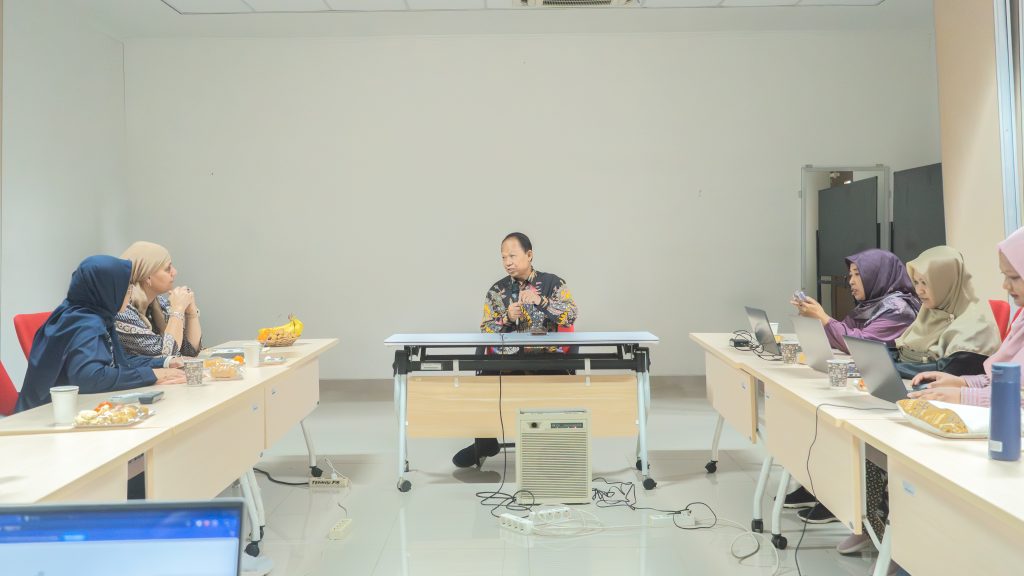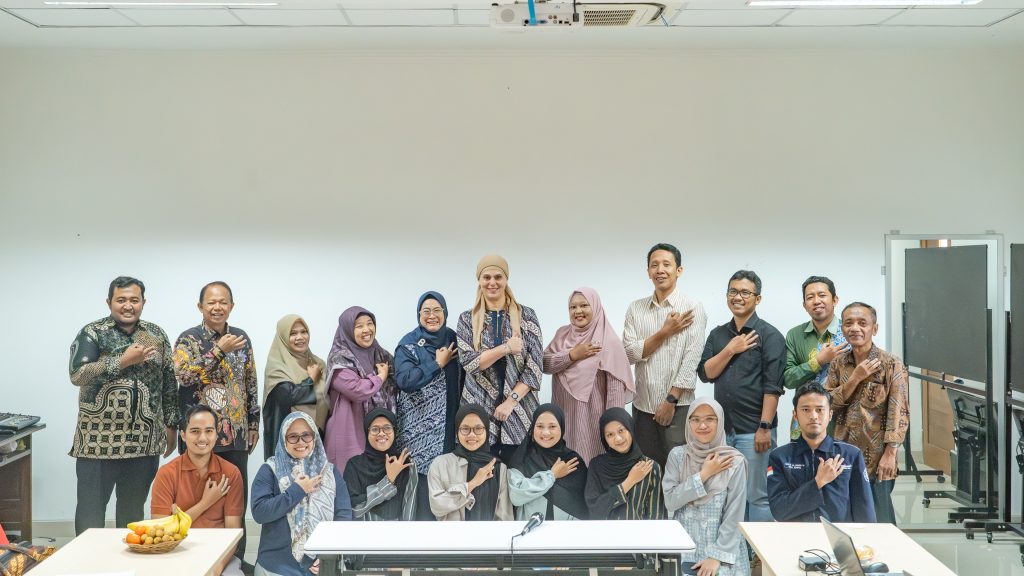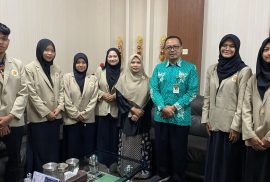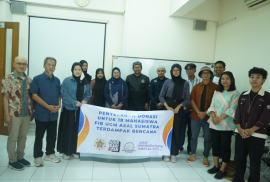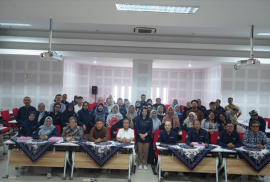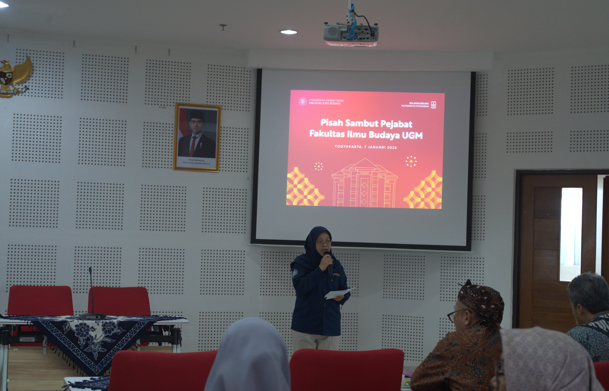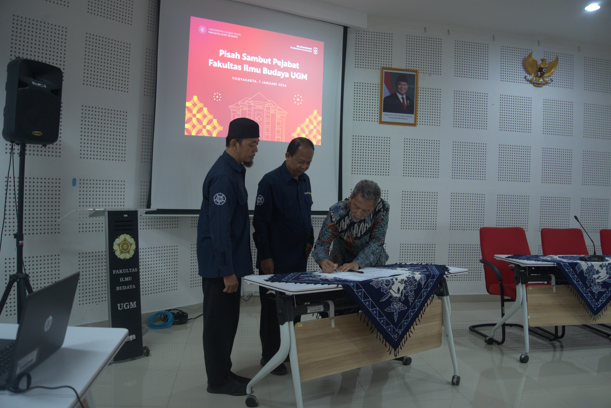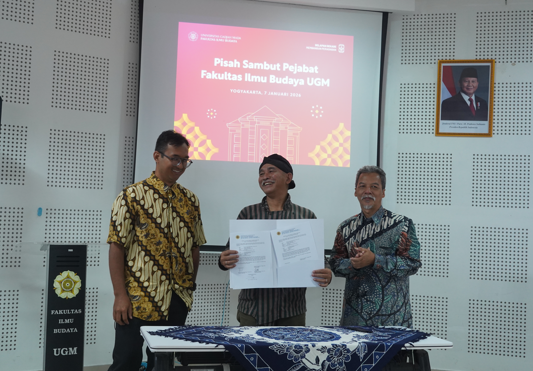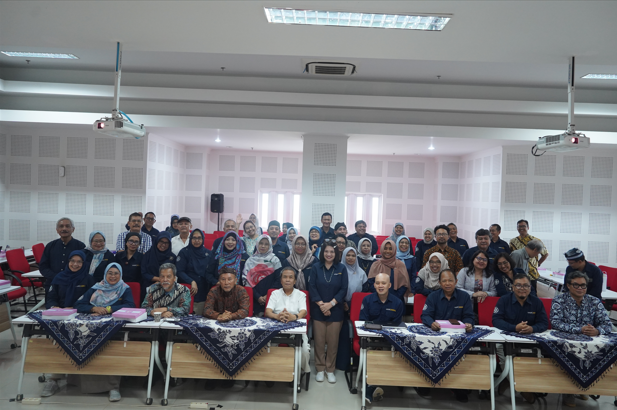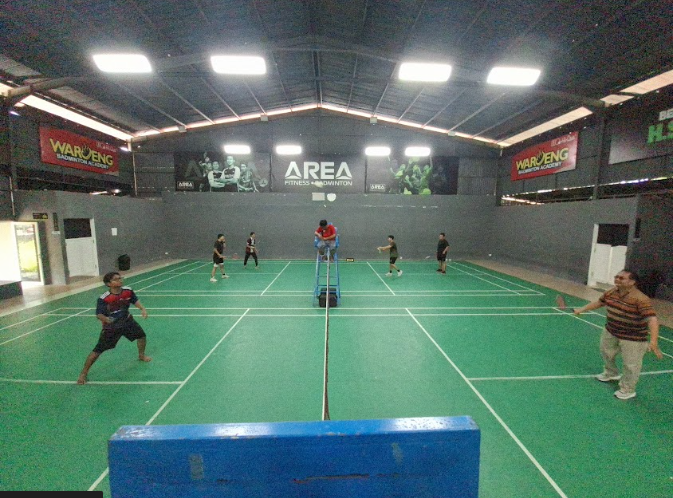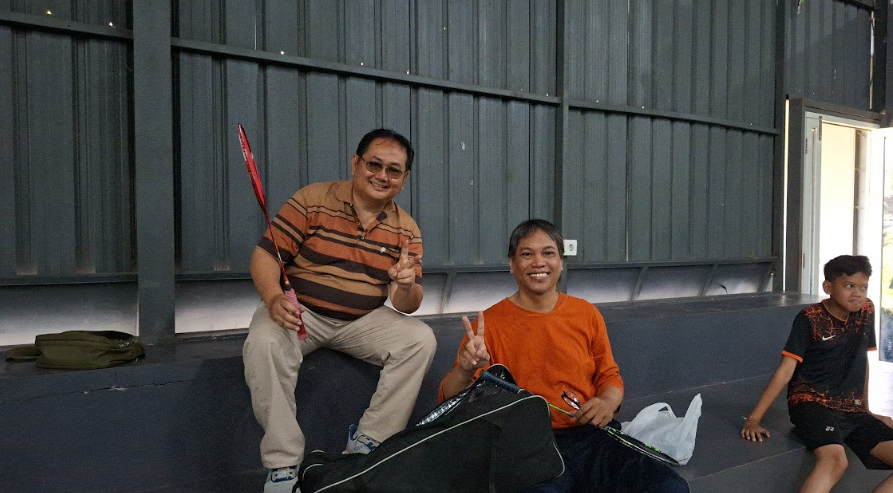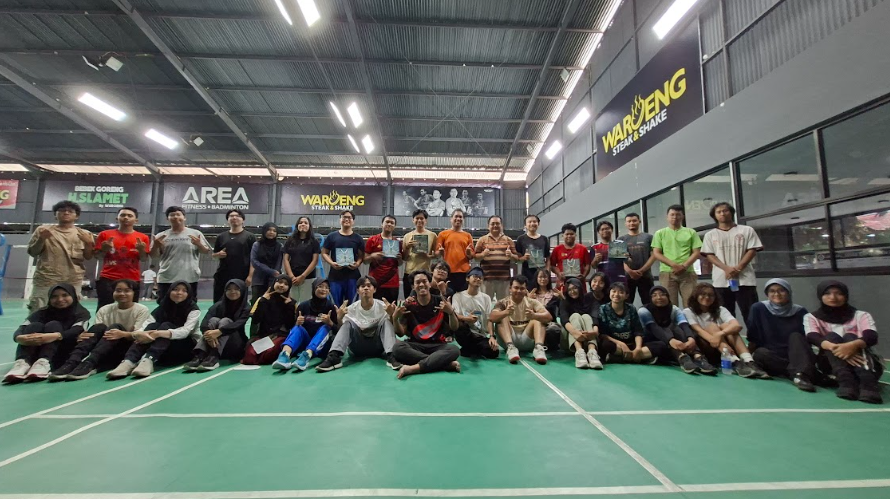Yogyakarta, January 8, 2026 – In an inspiring workshop titled “Current Multidisciplinary Publication Directions and Strategies in Arabic Language and Literature,” Anna M. Gade, Ph.D., an Islamic Studies expert from the University of Wisconsin-Madison, shared new insights for Arabic Literature academics. The event commenced with opening remarks by Mimi Savitri, Ph.D., Vice Dean of the Faculty of Cultural Sciences (FIB) UGM, followed by a brief presentation by Prof. Dr. Sangidu, M. Hum., who introduced the latest developments in Arabic Literature research and Middle Eastern Culture.
In her presentation, Dr. Gade offered a new perspective on how Arabic Literature can command a vast presence in the global academic arena. More than just an observer, Dr. Gade highlighted the immense initiative and untapped potential within the field. Her primary point focused on a fundamental transformation in constructing scientific narratives: researchers must have the courage to move away from purely descriptive writing and shift toward sharp, critical analysis.
According to Dr. Gade, articles that merely paraphrase texts without engaging with social reality often struggle to penetrate high-reputation journals, such as those indexed in Scopus. She said that “Analysis is crucial because it must stem from real cases.”
Throughout her career in producing various scholarly works, Dr. Gade has implemented two key strategies. The first is broadening the research scope through comparative studies, the second is sharpening the focus by deeply dissecting a specific linguistic or literary phenomenon. Interestingly, she demonstrated that Arabic Literature is not solely about grammar or pure aesthetics, but serves as a bridge to other disciplines, including law, sociology, and international relations. Dr. Gade’s message was clear: the sharper our analysis of the language’s depth and the bolder we are in stepping beyond traditional boundaries, the greater our contribution will be to the advancement of global knowledge.
Author : Indana Zulfa Maulida

